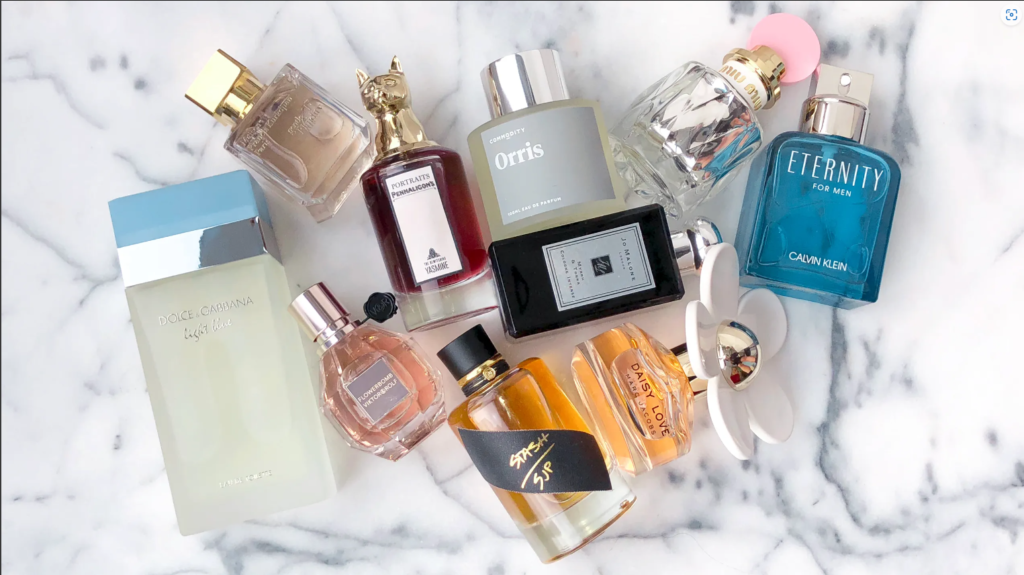1. Personal Identity & Self-Expression
Signature Scent: A perfume can serve as a unique identifier, helping you establish your personal signature scent. It’s an extension of your personality, much like your style or how you speak.
Mood & Emotion: Certain fragrances can reflect or enhance your mood. For example, citrus scents might evoke energy and positivity, while floral or woody notes can feel calming or romantic.
2. First Impressions & Attraction
Appeal to Others: Fragrance is often one of the first things people notice about you. A well-chosen perfume can make you more memorable and attract positive attention.
Attraction & Confidence: Certain scents, like those with musky or spicy undertones, are often associated with allure and sensuality. Wearing a scent you love can boost your confidence and make you feel more attractive.
3. Psychological Benefits
Mood Enhancement: Scents have a strong link to emotions. Certain fragrances can uplift your spirits or help you relax, similar to how music can influence your mood.
Memory Trigger: Scents have a powerful connection to memory. Wearing a perfume with a familiar scent can evoke pleasant memories or bring comfort.
4. Elegance & Sophistication
Luxury Experience: High-quality perfumes can feel like a small luxury that elevates your day-to-day routine. Many people enjoy wearing perfume as a form of self-care or to add an element of elegance to their life.
Compliments & Recognition: A good perfume can become part of your signature look, garnering compliments and even creating a lasting impression on others.
5. Ritual & Routine
Daily Ritual: For many, applying perfume is a comforting, almost meditative routine. It can become a ritual that marks the beginning of the day, helping you feel prepared and polished.
Change with the Seasons: People often choose different perfumes for different seasons, associating lighter, floral notes with spring and summer, and deeper, more complex scents with fall and winter.
6. Versatility & Customization
Variety for Different Occasions: You can select different perfumes based on the occasion—something light and fresh for a day at work, and a more intense, seductive fragrance for a night out.
Mixing & Layering: Some people enjoy experimenting with fragrance combinations to create a scent that’s uniquely theirs, mixing different perfumes or using complementary products like scented lotions or oils.
7. Cultural & Social Significance
Historical or Cultural Influence: Perfumes can reflect cultural heritage or tradition. In some cultures, wearing certain fragrances has deep symbolic or spiritual meanings.
Social Etiquette: In many social settings, fragrance is a sign of refinement and respect for others. A carefully chosen perfume can elevate your social presence.
8. Creative & Artistic Expression
Fragrance as Art: Perfume-making is often seen as a form of artistic expression. Many people appreciate perfumes for their craftsmanship, complexity, and creativity.
Exploration of Different Notes: The world of perfumes offers an almost infinite variety of scents, with layers of top, middle, and base notes that allow for a nuanced and personalized exploration of what appeals to you.
9. Scented Memories
Emotional Connection: Scents are known to trigger powerful memories. A particular fragrance might remind you of a loved one, a special event, or a time in your life that you cherish.
Gifts with Meaning: Perfume is a thoughtful and intimate gift. Giving someone a fragrance that you believe suits their personality or evokes a memory can create a lasting emotional bond.
10. Health Benefits
Aromatherapy: Some fragrances, like lavender or eucalyptus, have known therapeutic properties, promoting relaxation, better sleep, or stress relief.
Enhancing Mental Clarity: Certain fragrances like peppermint or citrus have been linked to enhanced focus and mental clarity.
Signature Scent: A perfume can serve as a unique identifier, helping you establish your personal signature scent. It’s an extension of your personality, much like your style or how you speak.
Mood & Emotion: Certain fragrances can reflect or enhance your mood. For example, citrus scents might evoke energy and positivity, while floral or woody notes can feel calming or romantic.
2. First Impressions & Attraction
Appeal to Others: Fragrance is often one of the first things people notice about you. A well-chosen perfume can make you more memorable and attract positive attention.
Attraction & Confidence: Certain scents, like those with musky or spicy undertones, are often associated with allure and sensuality. Wearing a scent you love can boost your confidence and make you feel more attractive.
3. Psychological Benefits
Mood Enhancement: Scents have a strong link to emotions. Certain fragrances can uplift your spirits or help you relax, similar to how music can influence your mood.
Memory Trigger: Scents have a powerful connection to memory. Wearing a perfume with a familiar scent can evoke pleasant memories or bring comfort.
4. Elegance & Sophistication
Luxury Experience: High-quality perfumes can feel like a small luxury that elevates your day-to-day routine. Many people enjoy wearing perfume as a form of self-care or to add an element of elegance to their life.
Compliments & Recognition: A good perfume can become part of your signature look, garnering compliments and even creating a lasting impression on others.
5. Ritual & Routine
Daily Ritual: For many, applying perfume is a comforting, almost meditative routine. It can become a ritual that marks the beginning of the day, helping you feel prepared and polished.
Change with the Seasons: People often choose different perfumes for different seasons, associating lighter, floral notes with spring and summer, and deeper, more complex scents with fall and winter.
6. Versatility & Customization
Variety for Different Occasions: You can select different perfumes based on the occasion—something light and fresh for a day at work, and a more intense, seductive fragrance for a night out.
Mixing & Layering: Some people enjoy experimenting with fragrance combinations to create a scent that’s uniquely theirs, mixing different perfumes or using complementary products like scented lotions or oils.
7. Cultural & Social Significance
Historical or Cultural Influence: Perfumes can reflect cultural heritage or tradition. In some cultures, wearing certain fragrances has deep symbolic or spiritual meanings.
Social Etiquette: In many social settings, fragrance is a sign of refinement and respect for others. A carefully chosen perfume can elevate your social presence.
8. Creative & Artistic Expression
Fragrance as Art: Perfume-making is often seen as a form of artistic expression. Many people appreciate perfumes for their craftsmanship, complexity, and creativity.
Exploration of Different Notes: The world of perfumes offers an almost infinite variety of scents, with layers of top, middle, and base notes that allow for a nuanced and personalized exploration of what appeals to you.
9. Scented Memories
Emotional Connection: Scents are known to trigger powerful memories. A particular fragrance might remind you of a loved one, a special event, or a time in your life that you cherish.
Gifts with Meaning: Perfume is a thoughtful and intimate gift. Giving someone a fragrance that you believe suits their personality or evokes a memory can create a lasting emotional bond.
10. Health Benefits
Aromatherapy: Some fragrances, like lavender or eucalyptus, have known therapeutic properties, promoting relaxation, better sleep, or stress relief.
Enhancing Mental Clarity: Certain fragrances like peppermint or citrus have been linked to enhanced focus and mental clarity.


